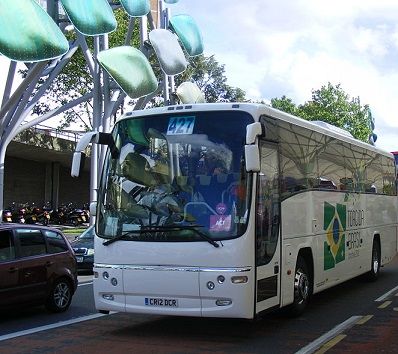BYD open first factory in Brazil for urban transport
A Chinese electric vehicle and solar panel manufacturer will open its first factory in Brazil this year, with the aim of revolutionising the country’s urban transport

The Director of the company’s marketing and governmental affairs in Brazil Adalberto Maluf Filho, told Xinhua that BYD is ready to provide non-polluting buses and taxis for large cities such as Rio and Sao Paulo.
Brazil faces major challenges with issues regarding public transport. The largest cities in Brazil do not have complete subway networks, for example Sao Paulo has four subway lines while Rio has only two.
The lack of rail systems has increased the demand for express bus lines and made electric buses a short-term viable option to avoid using diesel buses which cause pollution.
BYD is part of a consortium that won a bid last week to develop a car-sharing scheme in Rio, initially with a fleet of 300 electric cars.
According to Maluf Filho “Those who carried out the implementation studies will have more knowledge about it”.
BYD is establishing a factory in Campinas, Sao Paulo state, which will be operational by second quarter of 2015. The factory will produce batteries, solar panels and assemble electric buses with imported parts.
A second factory which will be built in the neighbouring states of Minas Gerais and Rio de Janeiro will manufacture e-buses locally to reduce the costs of the vehicles.
Currently battery cells that are being made only in China, Japan, South Korea and the United States will also be produced in the factory with the aim of sustaining the environment economically.
As the battery for electric vehicles makes them more expensive than cars that use fossil fuel, BYD will offer a leasing option in Brazil by which taxi companies and drivers can get cars without battery at the same price they would pay for a regular car while electric buses will be offered at the same price without battery as diesel vehicles, and the money that would have been spent on fuel pays for the battery leasing.
Maluf said: “It is the best deal in the world for taxi drivers, because today they are spending both on fuel and on car payments. We expect to be able to provide a large fleet by early 2016, in time for the Olympic Games”.
Rio will host the Summer Olympics next year and several projects are under way to prepare the city for the event.




